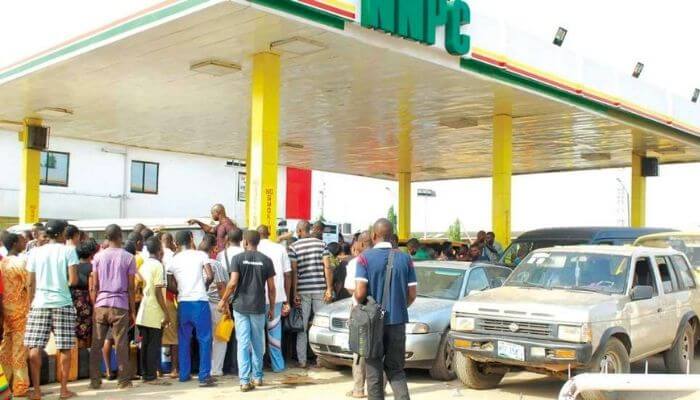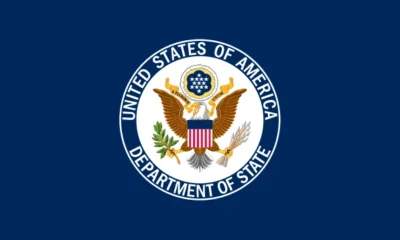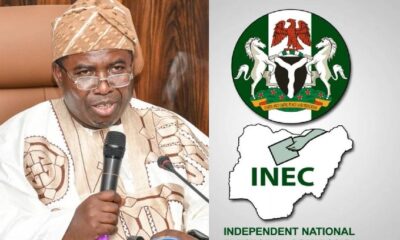Business
FG Begins 15-Day Emergency Fuel Supply To Combat Scarcity
The Federal Government initiates a 15-day emergency fuel supply to combat fuel scarcity across Nigeria, with vessels continuing to discharge petrol to depots.

The Federal Government initiates a 15-day emergency fuel supply to combat fuel scarcity across Nigeria, with vessels continuing to discharge petrol to depots.
However, queues persist at filling stations, leading to transportation challenges for residents and students resorting to trekking.
In response to the escalating fuel scarcity affecting various regions, the Federal Government of Nigeria has announced the initiation of a 15-day emergency fuel distribution plan aimed at ensuring that Premium Motor Spirit (PMS), commonly known as petrol, reaches all corners of the country.
VerseNews reports that this initiative includes the continuous arrival of fuel-importing vessels which are set to dock and unload petrol to depots from where it will be distributed nationwide.
The situation came to light after the Major Energies Marketers Association of Nigeria reported that their members in Apapa, Lagos, and other locations had received about 300 million litres of fuel from eight vessels earlier this week.
Despite these efforts, the impact was barely felt by Wednesday, as lengthy queues persisted at filling stations, notably on May Day, causing significant disruptions.
The Nigerian Midstream and Downstream Petroleum Regulatory Authority’s South-West Regional Coordinator, Ayo Cardoso, confirmed that in addition to the 240 million litres distributed on Monday, an additional 85 million litres were dispensed by Tuesday evening.
He reassured the public that the fuel supply would stabilize soon as more vessels are expected to arrive continuously over the next two weeks, further boosting the national fuel reserves.
Cardoso emphasized the government’s commitment to a fair distribution across all states, ensuring that every region receives its designated share to alleviate the current shortages. He urged the public to remain calm as the distribution process unfolds.
Amid these developments, the residents of Ogun State experienced severe mobility challenges, with many opting to walk significant distances due to the unavailability of transport caused by the fuel crisis. Increased transportation costs and closed filling stations have forced commuters to either stay home or face hefty fares.
Local reports highlight the broader socio-economic impacts, with students missing classes and small businesses struggling to operate. The public’s frustration is growing, with calls for urgent governmental action to address the root causes of the recurrent fuel crises and stabilize the situation.
























You must be logged in to post a comment Login